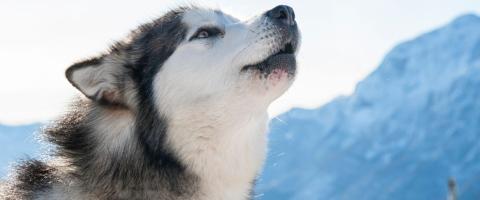
These magnificent canines aren't just pets; they're loyal sidekicks and a never-ending source of affection and happiness. If you've got an Alaskan Malamute at home, you likely picked them for some of their stand-out qualities. Let’s take a look!
The Best Half:
- Being a warm-hearted and dedicated addition to your family
- Showcasing a sociable and amiable demeanor
- Excelling as a child-friendly companion
- Radiating high-energy playfulness
- Sporting a robust, athletic physique that does particularly well in cooler settings
The Other Half (that we still love:)
- Craves lots of physical play and mental challenges to dodge any mischievous behavior
- Benefits from early training and social experiences for a balanced character
- Requires routine brushings to maintain that luxurious, mat-free coat
- Enjoys digging adventures that may require your supervision
- Needs targeted training to safely coexist with smaller animals
Worth It? Absolutely!
Is managing all these idiosyncrasies worth it? Absolutely! Your Mal is a vibrant personality package that loves a spirited outdoor romp as much as some quality family couch time. And if you hear a howl or two, don't worry—Mals might not be incessant barkers, but they do like to vocalize in their unique way.
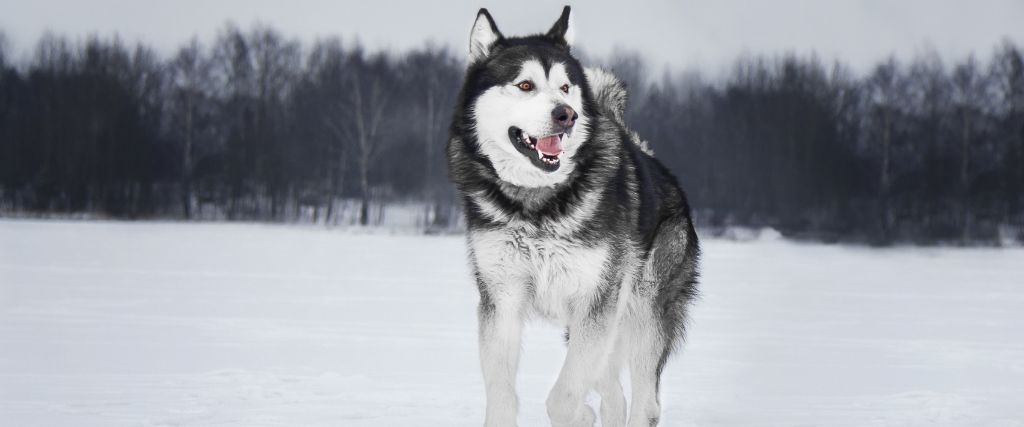
A Little History
The Alaskan Malamute is among the most ancient of Arctic sled dogs, with roots dating back more than 4,000 years. Initially bred by the Mahlemut Inuit tribe in Alaska, these dogs are known for their remarkable stamina, although they may not win any speed races. Even better, they're generally a hardy breed, with life expectancies often reaching around 12 years.
So, raise a paw in celebration of your fabulous Mal! They're not just a pet; they are a remarkable member of your family, offering you love, loyalty, and a touch of the majestic Arctic right in your own home.
Genetic Predispositions for Alaskan Malamutes
Hip Dysplasia
You might've heard of hip dysplasia—a hereditary condition that's quite common in Malamutes. It causes improper formation of the hip joints, leading to arthritis over time. If your fur buddy seems to limp or has trouble getting up, it's time for a vet visit. Early diagnosis through X-rays can make management easier, and in severe cases, surgery might be an option. Just a little tip: Keeping your Mal's weight in check can help delay the onset of arthritis.
Dwarfism
A Malamute with short legs? It might sound cute, but dwarfism in this breed is considered a health abnormality. Unlike breeds like Dachshunds, which are bred for short legs, this trait in a Malamute is not standard. Although it's not painful, there's no treatment for it, and ethical breeders would advise against breeding a dog with this condition.
Bloat
A serious issue to keep an eye on is bloat, or Gastric Dilatation and Volvulus (GDV). This condition can affect dogs with deep, narrow chests like the Malamute. When bloat occurs, your dog's stomach fills with gas and twists on itself, which can be fatal if not treated ASAP. Some signs to look out for are retching, restlessness, and a swollen abdomen. Immediate vet care is crucial, and preventive surgery is also an option.
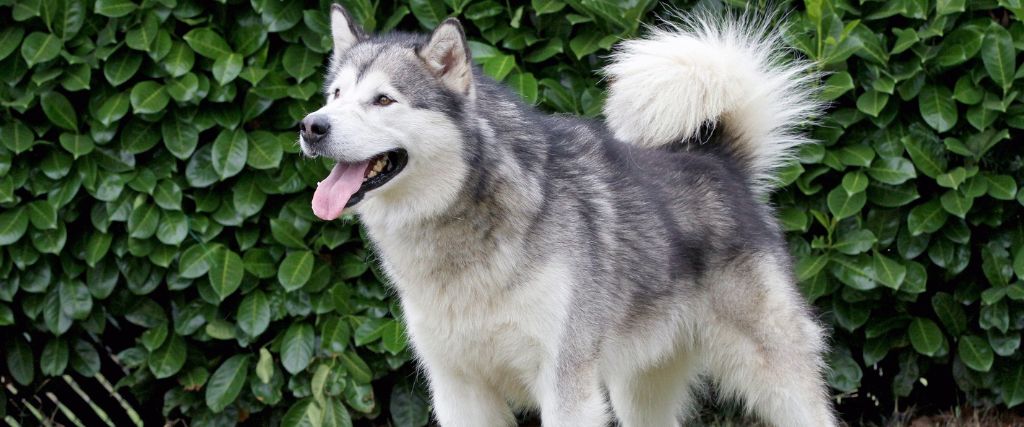
Peripheral Neuropathy
This is a rare nerve disease that may affect Malamutes, starting as early as 8 weeks old. Symptoms include weakness, loss of balance, and an unusually loud bark. It often worsens with age and can be fatal. Some dogs experience a partial reversal, which helps them relearn walking. Unfortunately, there is no proven cure, although supportive measures may provide some relief.
Thyroid Problems
Your Mal might be prone to hypothyroidism, a condition where the body lacks enough thyroid hormone. This can lead to symptoms like hair loss, dry skin, and weight gain. But don't worry, a simple blood test can detect it, and medication can manage the condition pretty well.
Eye Problems
Eye health is paramount for your Mal's quality of life. Issues like progressive retinal atrophy (PRA) and cataracts are common in this breed. PRA gradually causes blindness but is not painful. There's even a genetic test available for it. On the other hand, cataracts might develop as your dog ages, but surgery could restore vision.
Epilepsy
Seizures can be particularly frightening. Malamutes are often afflicted with idiopathic epilepsy, which is a genetic condition. The seizures usually start between 6 months and 3 years of age. Lifelong medication is often required to control them. During a seizure, it's important to ensure your pup doesn't hurt himself, but avoid controlling his mouth or tongue.
VKH Syndrome
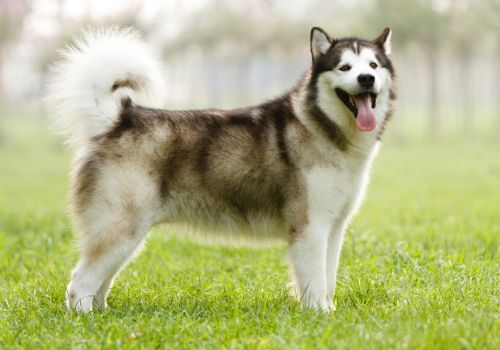
This autoimmune disorder is a bit more common in Alaskan Malamutes. VKH Syndrome affects the pigmented cells in your dog's eyes and skin, possibly causing pain or even blindness. The color of the nose, lips, and skin may change from dark to light, and sunlight can exacerbate the condition.
Diabetes
Diabetes mellitus isn't rare in dogs, and Malamutes have an above-average incidence. Dogs with diabetes require daily insulin shots, so early detection is crucial. Look out for increased appetite, drinking, and urination, coupled with weight loss. Don't worry, if diagnosed, your vet will guide you through treatment, which is quite manageable but does require commitment.
Cancer
Cancer risk increases with age, and because Malamutes often have longer lifespans, they are more susceptible. The good news is many forms of cancer are treatable via surgery or chemotherapy. Regular vet check-ups for lumps and bumps can make all the difference.
Alopecia X
Notice patchy hair loss or a woolly coat on your Malamute? It could be Alopecia X, which is often a cosmetic issue rather than a serious medical one. Treatment options sometimes include medications used for Cushing’s disease, and neutering can often solve the problem. However, dogs with this condition shouldn't be bred.
Skin Infections
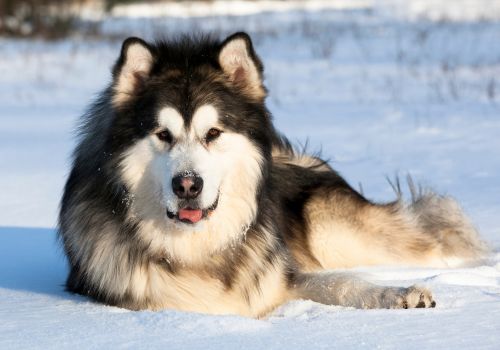
Your Mal might be susceptible to zinc-responsive dermatosis, a skin infection due to poor zinc absorption. If you spot red, hairless, or oozing skin, consult your vet, who may recommend dietary zinc supplementation.
Mange
These microscopic mites live in all dogs but can overpopulate in Malamutes, causing skin issues. If you notice dry, irritated, or hairless patches, particularly on the face or feet, consult your vet. Management is usually straightforward but can be lifelong.
Bleeding Disorders
Hemophilia is another concern in Malamutes. Always ensure that clotting tests are performed before any surgical procedure, as the condition may go unnoticed until severe bleeding occurs.
Retained Puppy Teeth
Your Malamute pup should naturally lose his baby teeth by around 4 months. If they don't, food and hair can get trapped, causing infections and bad breath. Your vet will keep an eye on this and might recommend removal if necessary.
Heart Disease
Malamutes are prone to various heart conditions, appearing either early or later in life. Regular vet check-ups will include listening for heart murmurs and abnormal rhythms. If needed, further tests like X-rays or ECGs will be conducted. Proper dental care and weight management are key preventive measures.
If you have questions and you'd like to reach out to us, you can call us directly at (561) 790 9225, or you can email us at [email protected]. Don't forget to follow us on social media Facebook, Instagram
